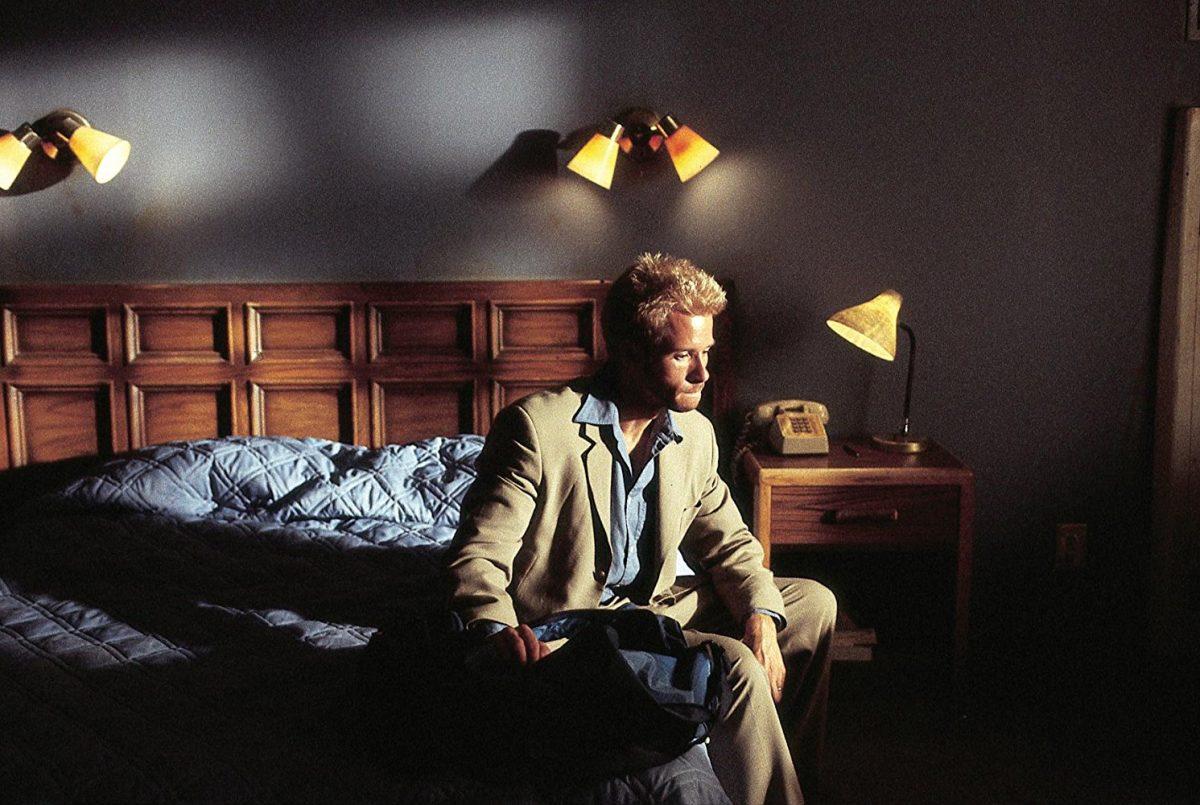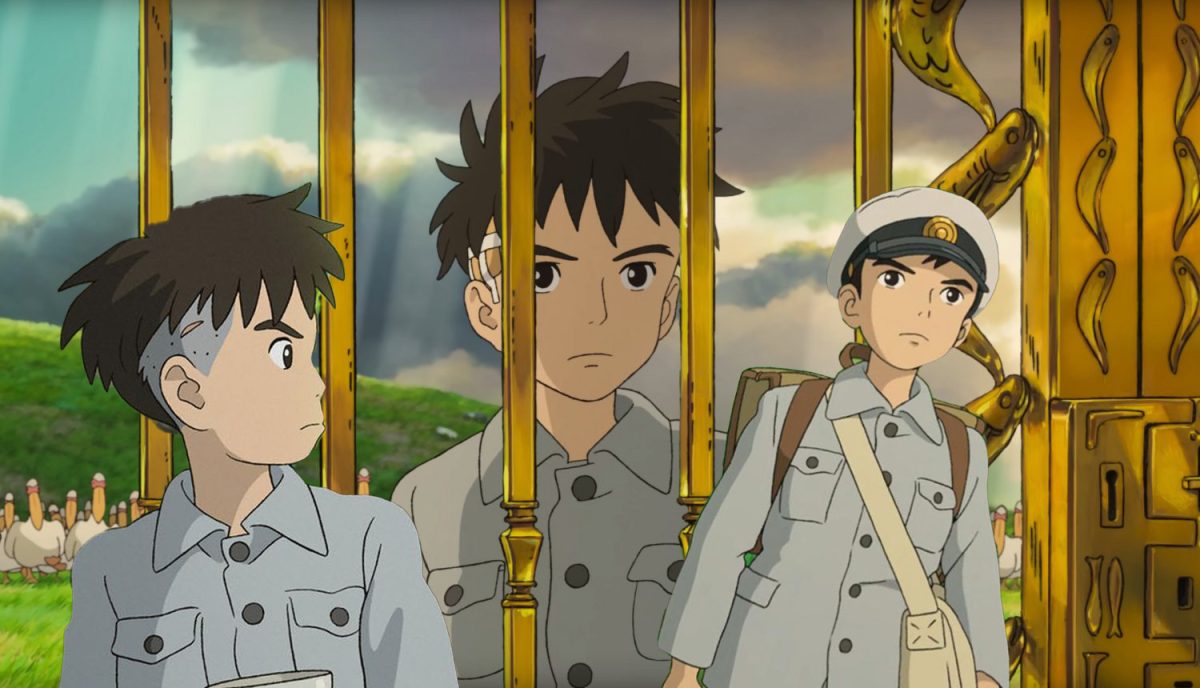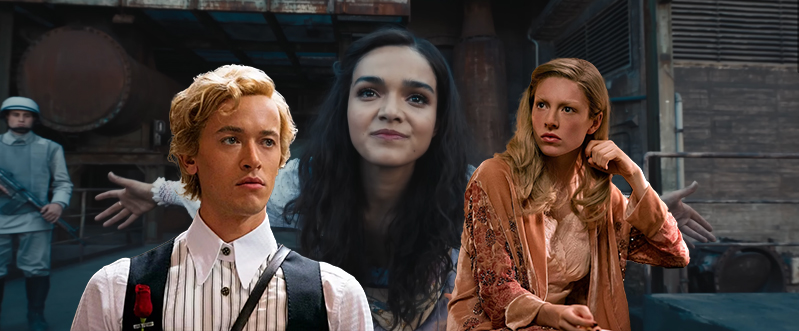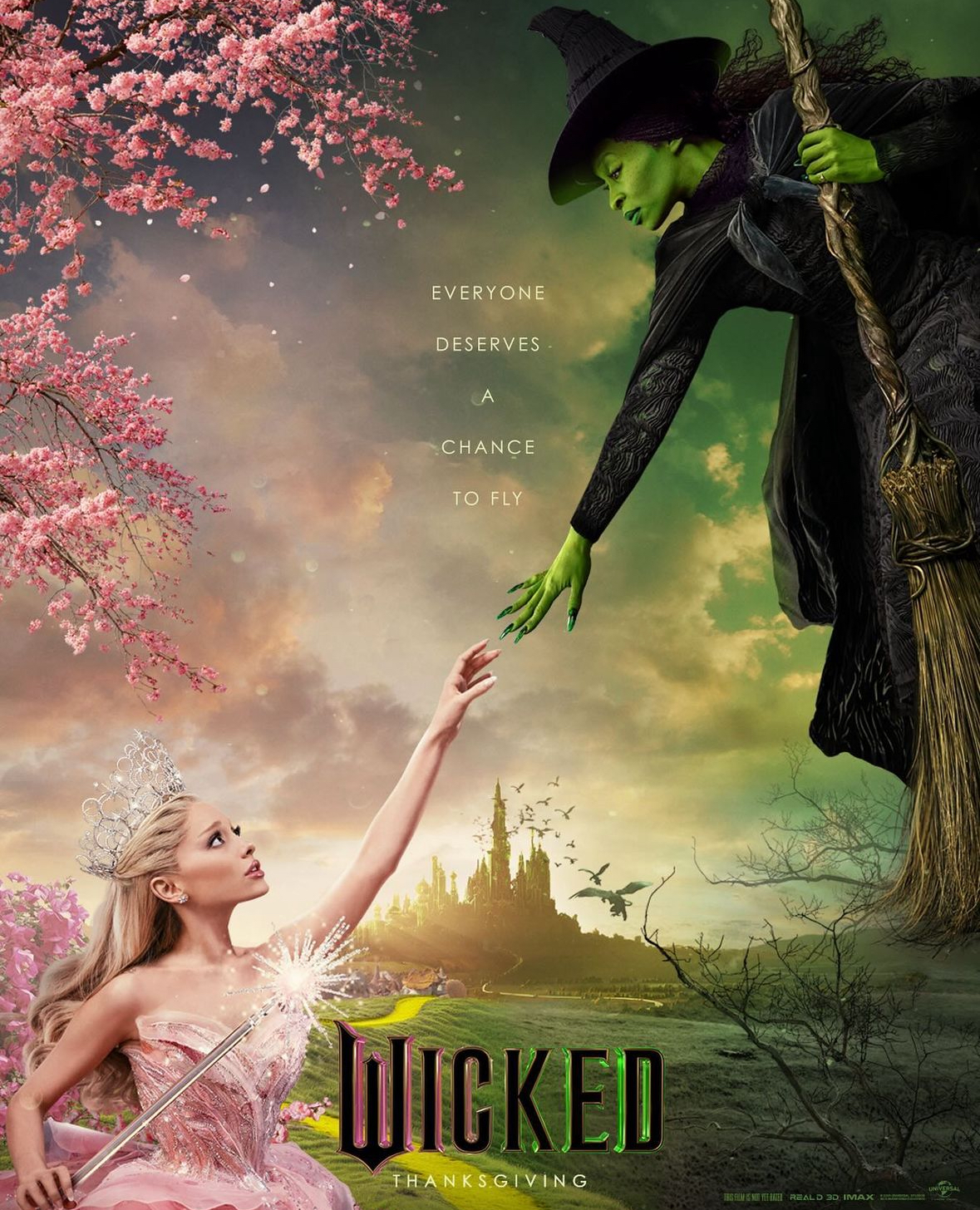Christopher Nolan’s second feature film stuns audiences with its stellar writing
From the end to the beginning, 2000’s Memento is captivating. Yes, you read that right; Director Christopher Nolan’s second feature film starts at the end of the story and ends at the beginning. A truly mesmerizing product of prestigious storytelling, Memento is downright unique and clever.
The protagonist, Leonard, an ex-insurance investigator who struggles from short term memory loss and can no longer establish new memories, sets on a determined path to figure out the truth of the last thing he remembers: to find the man who killed his wife. Having each scene ending at the beginning of the previous scene may sound confusing, but in a way it’s not. With an added narration by Guy Pierce’s Leonard, we as the viewer are able to get inside his complicated, mess of a head, developing a sense of dramatic irony knowing what’s going when he does not remember.
The main thing that the film excels in is the storytelling. Nolan proves to the audience that he is a force to be reckoned with as one of the best directors in the business. The ability to achieve the feat of telling a story backwards and actually being able to pull it off is spectacular. With stellar screenplay, the overall acting in this film was mediocre. While Pierce’s Leonard was great portrayal of mental illness and an outstanding performance as a whole, other performances like Joe Pantoliano as Teddy was excessively frustrating and an annoyance to watch.
The ability to achieve the feat of telling a story backwards and actually being able to pull it off is spectacular.
When viewing Memento on first watch, I moderately liked this film. On second and third watch however, I grew to love it. Despite fairly decent acting and a score that was average, writer/director Christopher Nolan really knocked it out the park with his second film; Memento was compelling and complex, establishing itself as an instant classic that has must-watch value.













